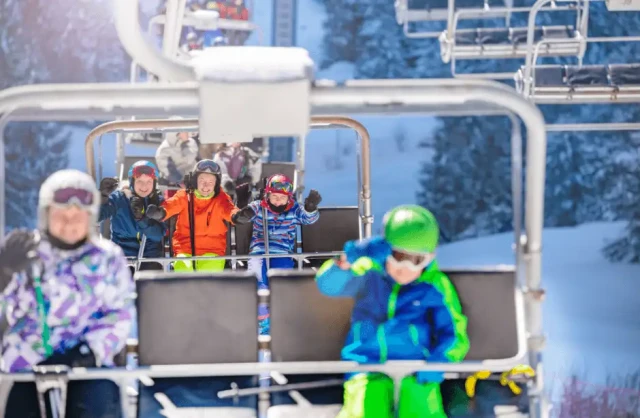The Alpine Resorts Award (ARA) plays a vital role in setting national employment standards (NES) for the alpine resort industry in Australia, covering essential aspects such as wages, working hours, and other rights to ensure fair treatment and safety for employees in this unique setting. Understanding these rights is crucial for employees and employers to maintain compliance and create a positive work environment. This article aims to provide a clear and comprehensive guide to the ARA, highlighting its key provisions and their implications for those working in Australian alpine resorts. By the end, readers will better understand their rights and responsibilities, contributing to a more informed and equitable workplace.
Overview of the Alpine Resorts Award
The Alpine Resorts Award (ARA) is a highly esteemed recognition in the alpine tourism and hospitality sector. It is designed to showcase exceptional performance and promote excellence among alpine resorts, deliver outstanding visitor experiences, and uphold sustainable practices in breathtaking mountain settings.

History and Purpose of the ARA
The ARA, founded in 2005, aims to recognise and promote excellence in alpine resorts worldwide. It sets standards for quality, sustainability, and innovation in alpine tourism and honours resorts for exceptional service, visitor experiences, and environmental stewardship.
Scope of Coverage
- Eligibility: The ARA applies to alpine resorts worldwide, encompassing ski resorts, mountain lodges, and other high-altitude hospitality establishments.
- Categories: Awards are presented in various categories, including best ski resort, best sustainable practices, best family resort, and best new resort.
- Criteria: Resorts are evaluated on numerous factors, such as customer satisfaction, service quality, environmental impact, and innovation.
- Impact: Winning an ARA can significantly enhance a resort's reputation, attracting more visitors and fostering a culture of excellence and sustainability.
The Alpine Resorts Award is essential for promoting excellence in alpine tourism. It ensures that resorts not only meet but exceed guest expectations while preserving the natural beauty of their surroundings.
What Are the Basics of Pay and Wages
Understanding pay and wages can be tricky. This guide simplifies Australian minimum wage requirements under the ARA, explains how pay rates are set, and outlines the variations in pay for full-time, part-time, and casual work.

- Minimum Wage Requirements under the ARA: The ARA establishes the minimum wage for various industries, regularly updating it to align with living expenses. Employers must adhere to these guidelines to guarantee equitable pay for their employees.
- How Pay Rates Are Determined: More experience and qualifications usually mean better pay. Jobs with more responsibility or specialised skills generally pay more. Rates of pay vary by industry due to supply and demand for skilled employees. Some employers provide pay raises or bonuses based on performance.
- Employment Pay: Employees usually receive a regular salary and benefits like paid time off. Pay is based on the time worked; part-time employees get similar benefits on a smaller scale. Casual employees are paid hourly, often at higher rates, due to the lack of benefits and job security.
Understanding these critical components can assist both employees and employers in guaranteeing equitable and lawful compensation procedures.
Working Hours, Breaks, and Leave Entitlements
Understanding your work hours, breaks, and leave entitlements is essential for a healthy work-life balance. This guide covers vital aspects under the Australian Regulatory Authority to help you navigate your rights and responsibilities at work.
Standard Working Hours Under the ARA
The standard working hours for full-time employees are 38 hours per week, as specified in their employment contract. Part-time employees have a different arrangement, wherein the number of hours they work is proportionate to the terms outlined in their contract. Flexible work arrangements and schedules can be discussed and arranged with the employer.
- Overtime Rules and Rates: Overtime applies to hours worked beyond the standard 38 hours. The overtime rates are higher than the regular hourly rate. It's important to note that overtime must be agreed upon by the employer and the employee.
- Requirements for Breaks and Meal Times: Employees are allowed a 10-minute rest period after completing 4 hours of work and a 30-minute meal break after 5 hours of work. These breaks should be uninterrupted and are typically unpaid unless stated otherwise in the employment contract.
Annual Leave: Accrual and Usage
Regular employees have four weeks of paid annual leave every twelve months. However, they still need their employer's approval to take leave and must give notice as required.

Types of Leaves
- Sick Leave: Paid leave for personal illness or injury.
- Carer's Leave: Paid leave to care for an immediate family member.
- Parental Leave: Unpaid leave for the birth or adoption of a child.
- Compassionate Leave: Paid leave for attending to a family member’s severe illness or death.
- Long Service Leave: Paid leave granted after a long period of continuous employment, varying by state and territory.
It's important to understand these benefits so that you can effectively balance your work and personal life while fulfilling your professional responsibilities.
Required Employment Conditions
Understanding the ins and outs of employment terms is vital for employers and employees. Knowing about job security, contracts, notice periods, and redundancy policies creates a fair and open work environment. This section covers the fundamentals of employment terms, outlining the rights and duties that shape the professional bond.

- Conditions of Employment: The terms outlined in employment contracts fundamentally shape working conditions, including job security, duration of employment, job role, and compensation. Well-drafted contracts offer clarity and protection by specifying conditions under which employment may be terminated.
- Notice Periods and Redundancy Provisions: Contract contracts' timeframes for ending employment are essential. They can differ based on how long someone has worked and company rules. They give both the employer and employee enough time to adjust. Redundancy rules explain the steps and payment when a job is no longer needed, protecting employees and ensuring fairness.
- Rights and Responsibilities: Employers must ensure a safe workplace, fair pay, and transparent communication. Employees must work diligently, follow company policies, and behave professionally. Respecting these responsibilities creates a productive and harmonious work environment.
What Are the Workplace Health and Safety Regulations
Strict workplace health and safety regulations are essential to ensure that work environments are safe and to minimise the chances of injuries or illnesses. These regulations, governed by national and local laws, require employers to uphold safety standards through regular risk assessments, proper training, and accessible safety equipment.

Specific Health and Safety Concerns for Alpine Resort Employees
Employees at alpine resorts encounter distinct health and safety challenges, given their work environment. They face extreme weather, high altitudes, and icy terrain, leading to concerns such as hypothermia, frostbite, and injuries from skiing and snowboarding. Vigilance against avalanches and falls necessitates specialised training and safety measures.
Providing a Safe Working Environment for Employees
- Employers in alpine resorts must provide safety training for staff tailored to the specific hazards of the area.
- All equipment, such as snowmobiles and safety harnesses, must be regularly inspected and maintained.
- Employers should offer protective gear like insulated clothing and helmets.
- Emergency response plans should be in place to handle incidents effectively.
- Regular safety audits and employee feedback mechanisms are crucial for maintaining safety standards.
Employers and employees in alpine resorts must understand the Alpine Resorts Award (ARA) to ensure fair work practices. The ARA sets guidelines for wages, hours, and conditions, promoting a balanced and fair workplace. Individuals in search of additional information or aid can access a wide range of resources, such as legal advisors and specialised workplace support services.
Adhering to fair and lawful employment practices benefits individual employees and fosters a positive, thriving resort community. By following the guidelines outlined in the ARA, Alpine Resorts can create an environment where everyone can enjoy a safe, respectful, and rewarding work experience. Seeking help when needed and committing to fairness and legality in all employment practices is essential.



